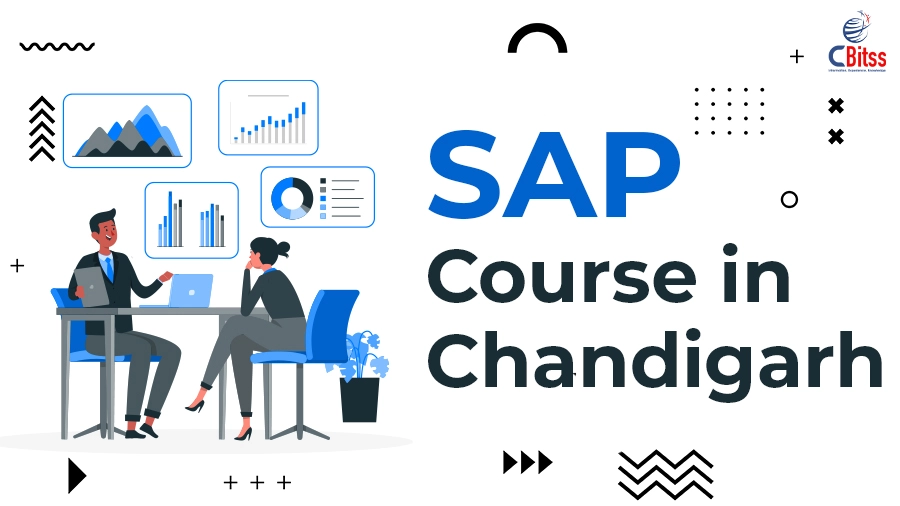What are the most common SAP modules?
SAP (Systems, Applications, and Products) offers a diverse range of modules to address various business functions and industry requirements. Here are some of the most common SAP modules:
SAP ERP (Enterprise Resource Planning)
SAP ERP is the foundational module that integrates various business processes, including finance, human resources, procurement, sales, and manufacturing.
SAP S/4HANA
SAP S/4HANA is the next-generation ERP suite designed to run on the SAP HANA in-memory database. It offers enhanced functionalities for analytics, machine learning, and a simplified data model.
SAP Finance (formerly SAP FI – Financial Accounting)
SAP Finance manages financial transactions, accounting, and financial reporting. It includes sub-modules such as General Ledger, Accounts Payable, Accounts Receivable, and Asset Accounting.
SAP Controlling (formerly SAP CO)
SAP Controlling focuses on internal reporting, cost control, and profitability. It includes sub-modules such as Cost Element Accounting, Cost Center Accounting, Profit Center Accounting, and Internal Orders.
SAP Sales and Distribution (SAP SD)
SAP SD manages the entire sales and distribution process, including sales orders, pricing, delivery, and billing.
SAP Material Management (SAP MM)
SAP MM handles procurement and inventory management. It includes functionalities for purchase requisitions, purchase orders, goods receipt, and invoice verification.
SAP Production Planning (SAP PP)
SAP PP supports production planning and control, including the management of bills of materials, work centers, and production orders.
SAP Quality Management (SAP QM)
SAP QM ensures product quality throughout the manufacturing process. It includes functionalities for quality planning, inspection, and control.
SAP Plant Maintenance (SAP PM)
SAP PM manages equipment, maintenance planning, and work orders for plant maintenance activities.
SAP Human Capital Management (SAP HCM)
SAP HCM covers human resources processes, including personnel administration, organizational management, time management, and payroll.
SAP Customer Relationship Management (SAP CRM)
SAP CRM focuses on managing customer relationships, sales, and marketing activities.
SAP Supplier Relationship Management (SAP SRM)
SAP SRM supports procurement and supplier relationship management, enabling collaboration with suppliers.
SAP Business Warehouse (SAP BW)
SAP BW provides tools for data warehousing, reporting, and analytics, allowing organizations to analyze and interpret business data.
SAP Business Intelligence (SAP BI)
SAP BI offers tools for business intelligence and reporting, including data visualization and dashboards.
SAP Fiori:
SAP Fiori is not a traditional module but rather a design approach for providing a consistent and intuitive user experience across SAP applications.
These modules cater to different business functions, and organizations often customize their SAP training in Chandigarh Its implementations based on their specific needs and industry requirements. Additionally, with the transition to SAP S/4HANA, some modules and functionalities have been streamlined and optimized.
What SAP certification should I get first?
The choice of the first SAP certification depends on your background, career goals, and the specific SAP modules or areas you are interested in. SAP offers a variety of certifications across different modules and functional areas. Here are some considerations based on common career paths:
Foundational Certifications
If you are new to SAP, consider starting with foundational certifications that provide an overview of SAP concepts. Examples include:
SAP Certified Application Associate – SAP S/4HANA Cloud – Essentials Implementation with SAP Activate
SAP Certified Application Associate – SAP S/4HANA Cloud (public) – Implementation with SAP Activate
Functional Modules
If you have a specific interest in a functional area, consider certifications related to that module. For example:
SAP Certified Application Associate – Sales and Distribution, ERP 6.0 EhP7
SAP Certified Application Associate – Financial Accounting, ERP 6.0 EhP7
SAP Certified Application Associate – Procurement, ERP 6.0 EhP7
SAP S/4HANA Certifications
With the transition to SAP S/4HANA, certifications related to S/4HANA are valuable. Examples include:
SAP Certified Application Associate – SAP S/4HANA Sales
SAP Certified Application Associate – SAP S/4HANA Finance
Technical Certifications
If you are interested in technical roles, there are certifications for SAP developers and administrators. Examples include:
SAP Certified Development Associate – ABAP with SAP NetWeaver
SAP Certified Technology Associate – SAP HANA
Analytics and Business Intelligence
For those interested in analytics and BI, certifications related to SAP Business Warehouse (BW) and SAP BusinessObjects are relevant. Examples include:
SAP Certified Application Associate – SAP BW/4HANA
SAP Certified Application Associate – SAP BusinessObjects Business Intelligence Platform
Industry-Specific Certifications
Depending on your industry focus, there are certifications tailored to specific sectors such as retail, healthcare, or manufacturing.
Project Management
If you are interested in project management, certifications related to SAP project implementation methodologies can be beneficial. Example:
SAP Certified Associate – SAP Activate Project Manager
Before selecting a certification, it’s essential to research the prerequisites, exam details, and the skills covered. Additionally, consider your current skill set, work experience, and the specific SAP technologies used in your organization or industry.
Keep in mind that SAP course in Chandigarh certifications are typically associated with specific software versions, so be sure to choose certifications relevant to the version you are working with or planning to work with. Finally, leveraging SAP’s official training resources and materials can help you prepare for the certification exams.
Read more article:- Techsolution.

